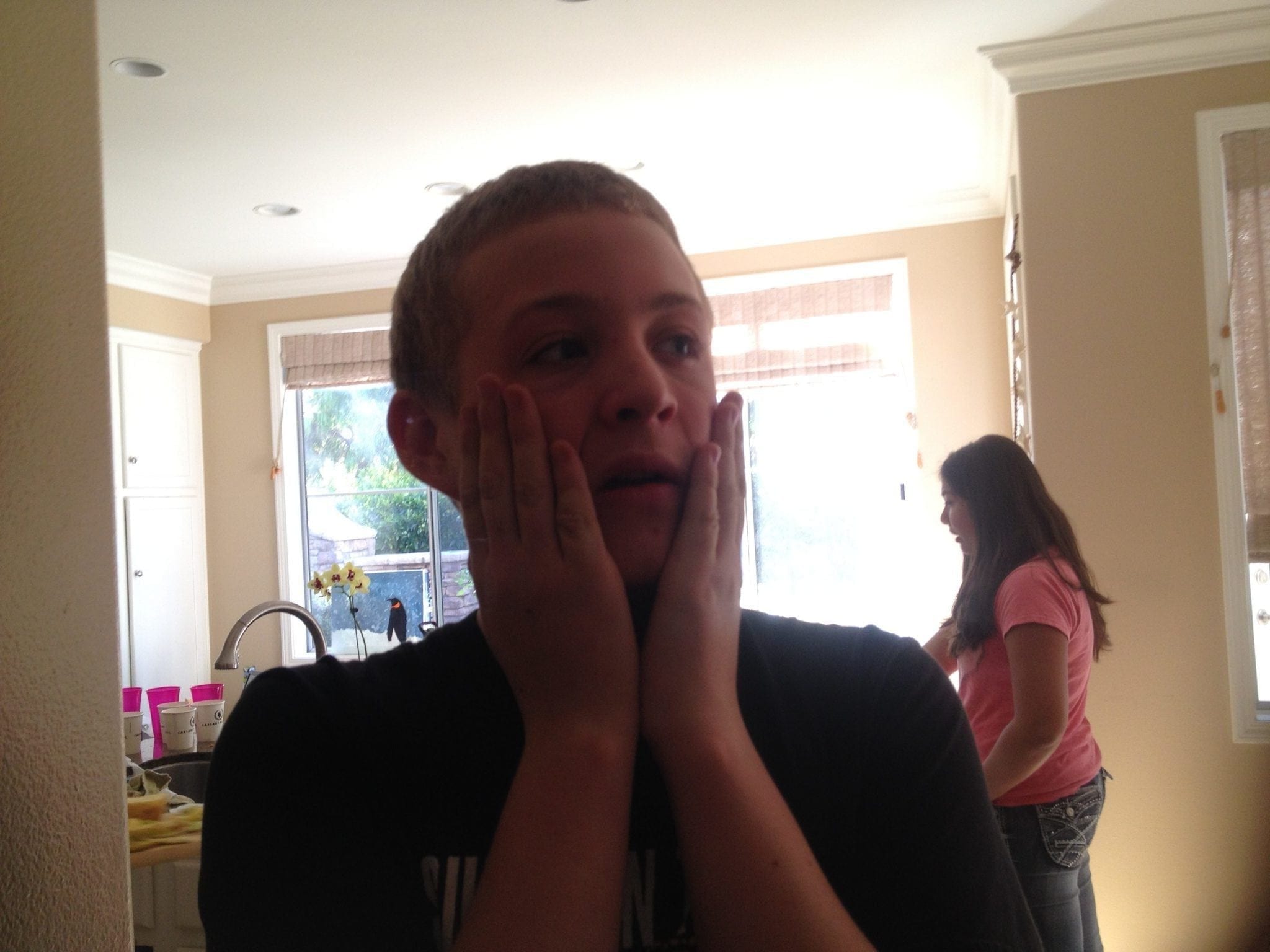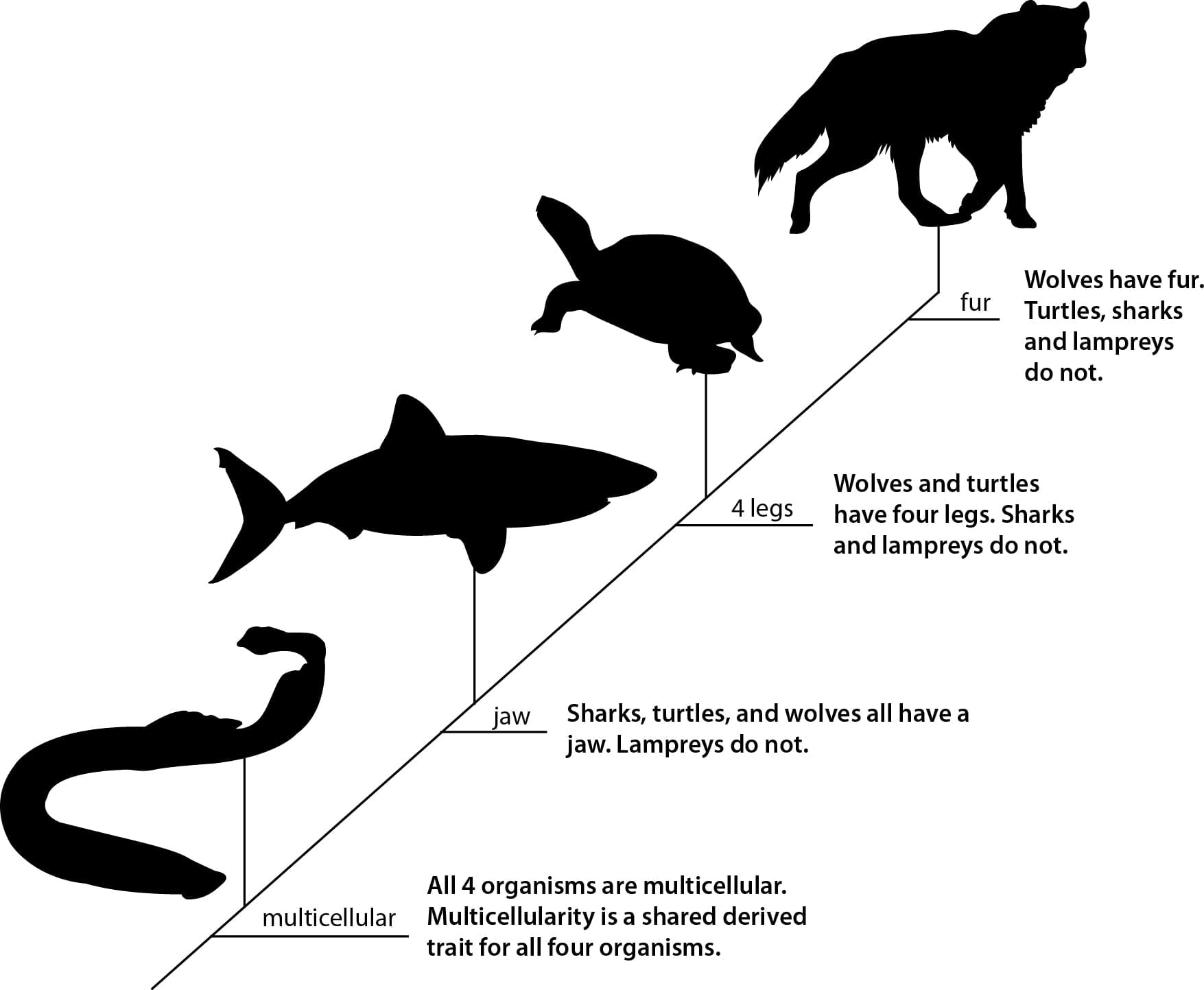A science fair in a co-op class? You bet! Actually, I am calling this a science fair, but it isn’t like any science fair you have ever seen. I gave students a question from an area we had studied. They had to design an experiment looking at that question, conduct the experiment in class using their fellow students, collect data, and explain how they would analyze the data. I did this with my co-op class last year, and it was one of the highlights of the class! You do not need to have a large co-op class to make this work, either. In fact, if you are going to get through all the experiments in the allotted time, you don’t want too many experiments. This is the last of my co-op posts. I am not teaching a co-op this year, even though I have had some very tempting offers. I am too busy writing Earth and Space 2, which my guinea pig… I mean my son… is using and loving. I have to stick with it for the rest of you!
Lucky for us there is one more co-op post coming from Karen. At the end of this year she will share her suggestions for extra-super extra-curricular resources! Have you ever noticed I love exclamation points! If you met me you would see that they are the punctuation mark that best describes my personality‼‼ An exclamation point with a smiley face at the bottom! (I would definitely not be a comma. Commas make me crazy. My commas make my editor crazy too. I put them in the wrong places and leave them out of the right ones. No one can be good at everything. If you ever find a typo of mine that bothers you, send me the correction, and I will fix it.) 😉
What You Will Need
- Two to four parents (no more, no less – less is too few, and more is not always better)
- A scoring rubric
- My students furnished their own supplies for this, but I offered to do so. I told them I needed at least 24 hour notice, but no one took me up on it.
Be Thoughtful about the Amount of Help Needed
You should assume that no student in your co-op has ever participated in a science fair, or designed their own experiment. I did not want my students to be lost or intimidated by the process. I sent them a couple of e-mails during the week to make sure they were on track with their experiments.
Decide if You Want Students to Work in Groups or Individually
I started the students in groups, but one of the groups wanted to split up for this and design their experiment individually. The other two groups preferred to work in groups. This resulted in there being five experiments at the fair.

The Senses
I asked each group to design an experiment dealing with a specific sense. I chose this because the five senses is an area that everyone has experience with. If you want originality with the experiments, you should choose an area that kids really understand. It is easier to get real creativity if your students are not bogged down figuring out details of the science involved. Could you imagine if I did this with a focus on genetics!
Here is the text I gave to my students:
Labs this week
I have asked each of the groups to work together to create an experiment. Since I do not want only 1 sense getting all the attention, each group will be given a different sense. I want to see you all do your best, there might be a clear winner or not. If more than one team wins that is great. There are experiments out there that test all of these things. Try to develop your own experiment first before getting on the internet. Only get on the internet if you absolutely cannot think of anything, and please contact me before you do that. I will help you if you need guidance.
I want to hear from each team on or before Monday about your planned experiment. These are some of the elements you need to think about
- How will the results from my experiment answer the issue I am studying?
- Did I create an experiment that is unbiased?
- How will I collect and analyze the data from my experiment?
Group 1: Create an experiment testing if the color of food affects the sense of taste.
Group 2: Create an experiment testing if you need your sense of smell to taste.
Group 3: Create an experiment testing if your sense of touch is affected by your age.
The groups need to figure out the experiments together. One person should not do all the work!
Group 2 was the group that did three experiments all looking at the same issue. The three students created three very different experiments.
The Night before the Fair
- Contact your students to make sure they have everything they need and ask them to be a little early to set up. (Make sure parents know this lab could run late. We did not do it, because I did not think of it, but what would be really great is to have the parents go through the experiments after class. Make sure everyone has enough material if you decide to do this.)
- Contact parents who are judging and remind them to be there.
- Make sure you have a rubric printed for them. Here was mine.
Use the scale from 1 to 10, 10 being the best; circle your answer
- How well does the experiment answer the question? 1 2 3 4 5 6 7 8 9 10
- Was the presentation and procedure coherent and well thought out? 1 2 3 4 5 6 7 8 9 10
- Can the group explain their methodology and what they are testing? 1 2 3 4 5 6 7 8 9 10
- How unbiased is the method used for conducting the experiment? 1 2 3 4 5 6 7 8 9 10
- Uniqueness and creativity? 1 2 3 4 5 6 7 8 9 10
- How good was the group’s system for collecting data? 1 2 3 4 5 6 7 8 9 10
- How will the group analyze the data? 1 2 3 4 5 6 7 8 9 10
- Do you think the group will be able to make meaningful conclusions from this experiment? 1 2 3 4 5 6 7 8 9 10
The experiment my son thought was the best did not win, because the person conducting it forgot to collect data, and could not answer the question of how he would analyze the data if he did collect it!
The Day of the Fair
- Get there early. Some of you students will be nervous, and most students will need help setting up.
- Give each judge a copy of the rubric.
- Your judges might want to be test subjects or they might want to watch. Let them decide how they want to proceed. The judges should decide on values for the rubric independent of each other.
- Have students conduct the experiments.
- You need to have students cycle through to be test subjects as well as presenters. You will have to figure out the logistics of this as you go, but be prepared. You will have to be on top of this. Some experiments are quick to conduct and some are not.
- Have the judges tally the results. Ties are awesome. There are no winners or losers on a day as fun as this one!
Check out our post on the homeschool history project here.




